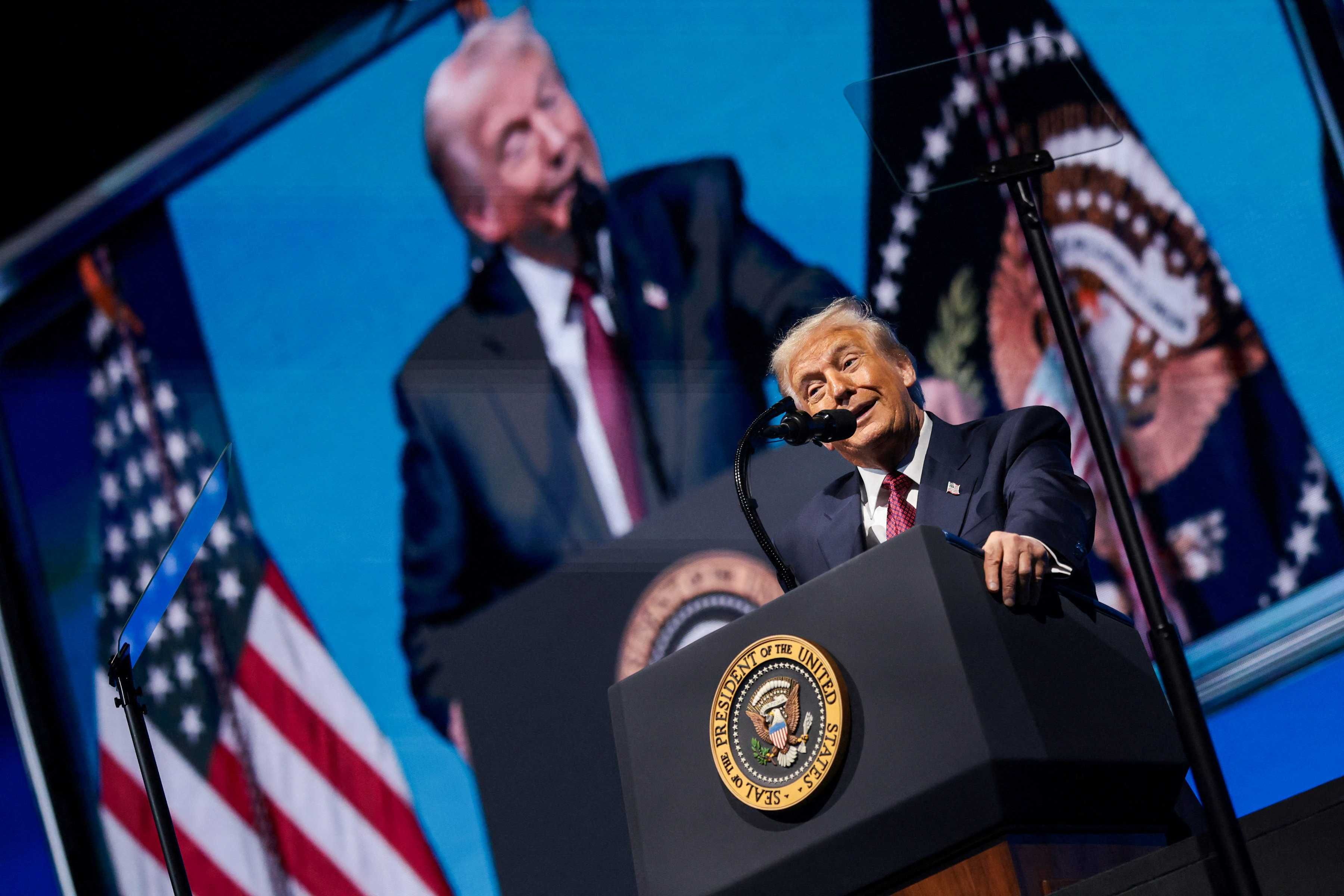U.S. President Donald Trump delivers remarks to the American Business Forum Miami at the Kaseya Center Arena in Miami, Florida, U.S. November 5, 2025.
President Donald Trump might finally be admitting that his economy is a liability with voters, but he faces an uphill battle in convincing them that he actually cares, according to a new analysis from Bloomberg.
The cost of living has been the leading political issue in the U.S. since inflation rates began to surge in 2022. It remained a raw subject for voters in 2024 as they reelected Trump to the presidency, primarily in the hope that he would bring down costs. Since then, however, his focus on immigration enforcement and prosecuting his perceived enemies has left the affordability issue to fester and worsen.
After voters soundly rejected GOP candidates in favor of affordability-minded Democrats in the most recent round of elections, Trump finally seems to be admitting that the economy is a lead-weight on his presidency. However, any attempts to address the problem will run into a harsh reality exposed by Bloomberg columnist David M. Drucker in an analysis released Tuesday: voters simply don’t believe he cares about the issues.
Drucker backed up his argument with findings from a CBS News poll released at the end of October. In it, around 75 percent of respondents said that Trump was insufficiency focused on lowering the cost of living. More to the point, they also said that he was focused too much on a litany of other pursuits, such as “criticizing political opponents” (61 percent), “putting tariffs on goods from other countries” (60 percent), “troop deployments to US cities (52 percent).
Drucker also analyzed Trump’s recent Truth Social posts, finding them to be focused heavily on lashing out at his perceived enemies — including late night talk show host Seth Meyers and former congressional ally Marjorie Taylor Greene — and supporting policies that raise costs, such as his tariff agenda and repealing the Affordable Care Act.
This deficit voters could be overcome in time to avoid a GOP wipeout in the 2026 midterms, but Drucker argued that it would required a considerable shift in messaging and discipline from Trump.
“He could wave the white flag on tariffs,” Drucker wrote. “He could stop talking about everything that pops into his head that doesn’t have to do with lowering costs. Those last two suggestions are critical. But they might be more than this president can bear.”
From Your Site Articles
- Trump voters are 'taking it on the chin': Bad job numbers are worse for 'Cletus' ›
- 'Bamboozled': Trump voters have 'a good deal of disappointment' in his handling of economy ›
- Most Trump voters see economy as a huge problem — but not MAGA men ›
- Three-time Trump swing state voter 'very let down' by the president - Alternet.org ›
- MAGA facing 'clear liabilities' as GOP struggles with post-Trump future - Alternet.org ›
Related Articles Around the Web
